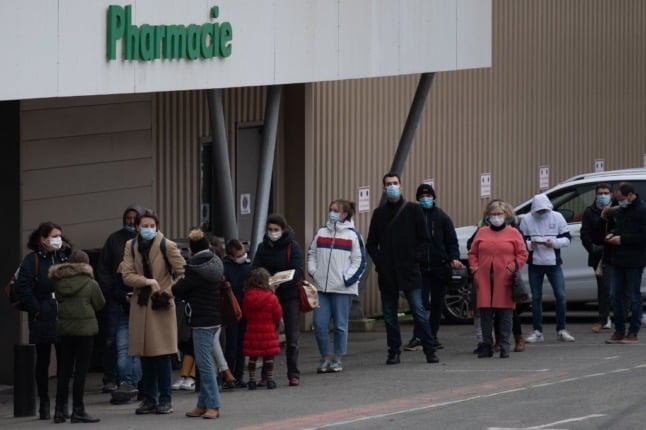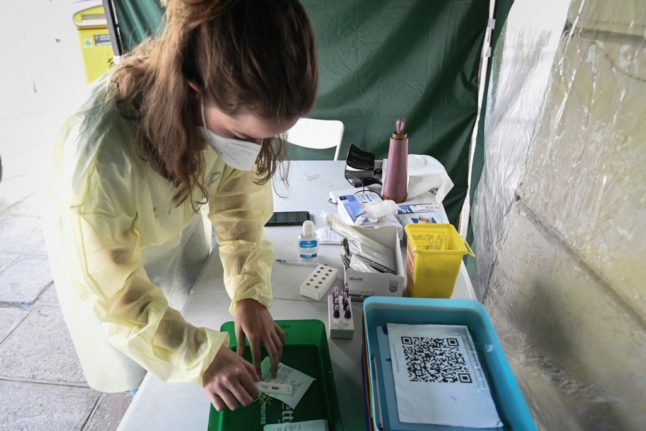France posted 501,635 new cases of coronavirus for the past 24 hours on Tuesday, a new daily record and the first time the headline number has surpassed half a million.
The country is currently recording the highest daily infection rates of any major European nation, with an average of more than 360,000 over the past week.
More than 30,000 people are in hospital with coronavirus across France in the highest such tally since November 2020, official figures showed.
But only a little more than 3,700 were in intensive care, less than during previous periods of high infection.
On Tuesday morning, the French Education Minister told BFMTV that 4 percent of French classrooms were closed due to Covid-19.
The highly contagious Omicron variant that is fuelling the latest wave is believed to be less dangerous than the previous dominant strain Delta. One in ten French people have tested positive for Covid since the beginning of 2022.
1 Français sur 10 a été testé positif depuis le 1er janvier pic.twitter.com/AZJSksRSPH
— GRZ (@GuillaumeRozier) January 25, 2022
Some 364 people died of the virus in the past 24 hours, bringing the total number of deaths from Covid in France to 129,489.
The latest figures came after new Covid rules came into force in France on Monday, with the health pass transformed into a vaccine pass.
READ MORE What changes on Monday as France introduces the vaccine pass?
People are now required to be vaccinated against Covid-19 to enter bars, restaurants, trains and planes.
A negative coronavirus test will no longer be enough to access leisure activities, some work events and long-distance travel.
More than 77 percent of France’s population has received two shots of an anti-Covid vaccine.
How France emerges from the current wave is seen as crucial in April presidential elections, in which President Emmanuel Macron is widely expected to run although he has yet to declare his candidacy.
Despite the high caseload, Prime Minister Jean Castex last week announced a timetable for lifting Covid restrictions in France from February 2.



 Please whitelist us to continue reading.
Please whitelist us to continue reading.
Is it anything to do with the numbers of people getting tested? Are any statistics available for this? I wonder whether the fact is so easy (and free for most people) to be tested, that this is why there is such a high number. Do French people home-test so much? I wonder if countries like the UK might use home tests more, which then might not get reported when positive. Just a thought.
I think this is very likely the case. Certainly the U.K. uses more home tests which they don’t report. I believe they no longer have to have a PCR test if they have a LFT that shows positive.
So, a fatality rate of less than 0.1%. My blood pressure pills have a higher fatality rate than that.
Case numbers are now irrelevant. It is ICU and death numbers that are important. Most important is whether those people have comorbidities and what they are. Are people dying WITH Covid rather than FROM Covid. Just like the elderly and sick are hospitalised and die of influenza every winter. We need to stop this constant fear mongering but it’s elections so Macron will want to keep that running high.